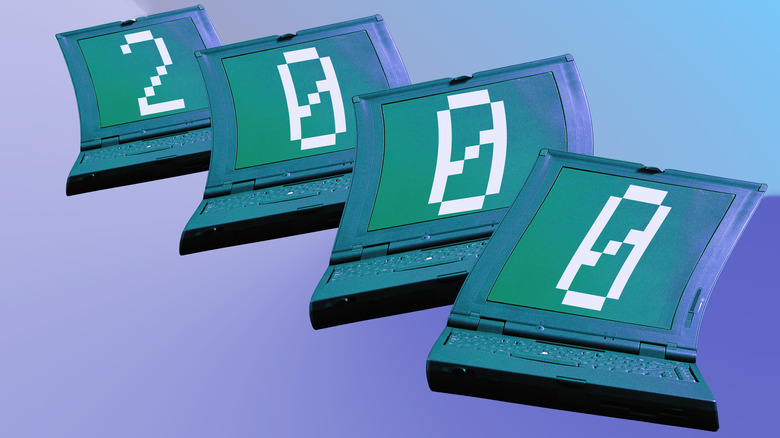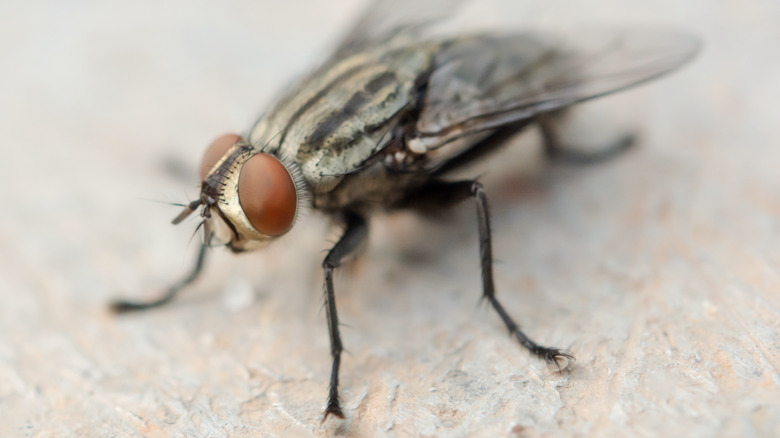The Bizarre Futuristic Food Trend Predictions For 'Y2K'
It turns out that people were freaking out about Y2K long before the notion that all our computers were going to fail, leading to some kind of tech-based armageddon — which we all know now didn't happen and was ridiculous. Computer clocks were equipped to handle rolling over from 11:59 p.m. on December 31, 1999, to 12:00 a.m. on January 1, 2000, just fine. But something about the year 2000 and its futuristic sound fascinated people starting decades before the big clock change.
What would people wear in this futuristic year? Would everyone be dressed like the Jetsons" Would people drive around in floating cars à la "Back to the Future"? How would we live in the future? And of course, the most important question for all foodies was, "What would we eat in the year 2000? Of course, we know now that what we ate in the year 2000 was more along the lines of Neapolitan Oreos and Pepsi Blue, but that's another matter. What futuristic things did people dream up long before Y2K hit?
1979's vision of a Y2K New Year's feast
Back in 1979, Food & Wine published an article predicting the New Year's Eve of the future. And it was disgusting. The least offensive part of the spread was the powdered champagne made from packets with added water. We could get behind that. Though wine snobs might turn up their noses at the product, it would undoubtedly be highly portable.
But the main course would be ... dun dun dun ... face flies. Clemson University entomologist Dr. Edwin W. King, who had studied farming the insects, predicted these disgustingly named creatures would be "the Hamburger Helper of AD. 2001." Ew. It gets worse. Although the bugs are virtually tasteless and contain a substantial 53% protein, they subsist on a diet of cow poop.
As gross as it may sound, this prediction actually wasn't that off. We just moved to a less yucky-sounding bug that doesn't dine on feces. Here in the future (so to speak), we do have insect protein. Cricket flour packs a protein punch and is way more environmentally sustainable than traditional protein sources, though how it fares in Hamburger Helper, we can't say. Additionally, while it's certainly out there, insect protein has hardly become a dietary staple of the future.

